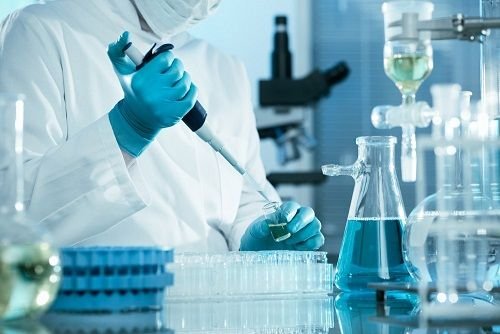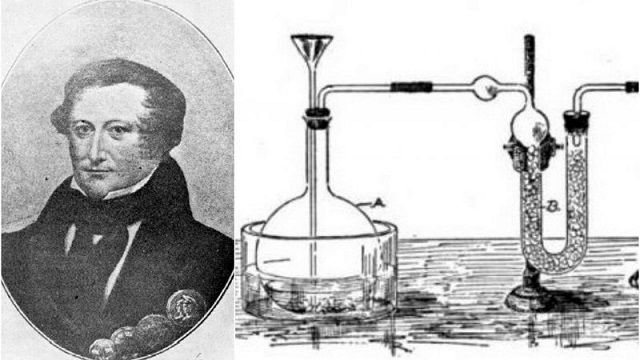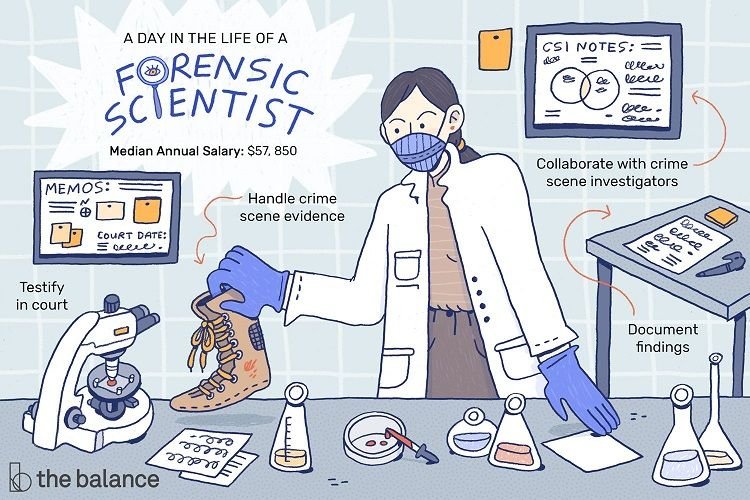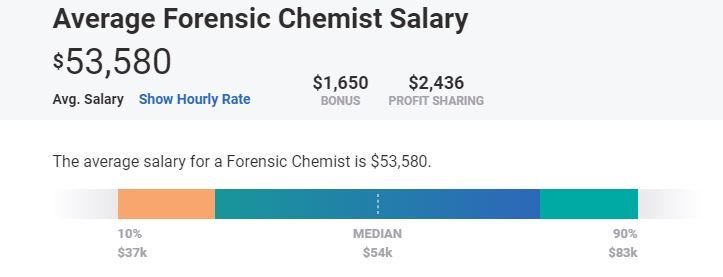Forensic Chemistry: Definition & Overview
Author: @msa11 (80% payout)
In a Hollywood movie or a crime show, you often encounter a common scene: Someone has been murdered and the investigators then cordoned off the area to investigate. It is related to chemistry and toxicology but in some cases, biology also plays a role in this sector. Investigators look for evidence there, such as blood, impressions, information materials, chemical items and much more.
Some things don't seem to matter to the average person, but they could be meaningful for forensic chemists. And here's the game of forensic chemistry. However, if you have a strong desire to solve crime puzzles or shape the world of justice by using science, this can be an excellent career for you.

Image Credit : forensicstat
What Does a Forensic Chemist Do?
A forensic chemist is he or she who analyzes the physical evidence, any non-biological materials, samples for clues to solve crimes and figures out how these things connect to the person who committed the crime. A wide array of laboratory techniques and materials is used in forensic studies. Basically, a forensic chemist performs various types of tests, depending on what the material is.
Want to know about sleep paralysis? Click the link below to learn more: Sleep Paralysis
Many methods and instruments are used in this work. Besides, this sector utilizes various molecular & atomic spectroscopic instrument sensors, various separation sciences, NMR, Chemometrics. Multiple tests at trace levels are crucial in this sector. And all the tests are done in the laboratory. In addition to running tests, they must document their findings in an official report.
History of Forensic Chemistry

Image Credit: the vintage news
Throughout history, poison has been used for committing murders or executions. It is known that the Egyptians, the ancient Greeks and the Romans were the first to use poison. An early scientific method for chemistry began emerging among early Muslim chemists. Then presumably, Democritus began to study poison. The two most popular toxins of the Ancient Roman Times were Arsenic and Hemlock. In 1836, James Marsh, a Scottish chemist, started the sector with the Marsh arsenic detection method, which later initiated the new era in criminology. [1]
Want more similar stories in future? Consider supporting the author by donating here
Academic Requirement
A forensic chemist typically holds a bachelor’s degree in clinical chemistry or any related scientific field. Moreover, some universities now offer master’s degrees and even doctor (Ph.D.) degrees in forensic chemistry. If you have experience in biochemistry, it is possible to switch to this sector. Top academic programs: Texas, New York, Bournemouth (UK), Copenhagen (Denmark), Melbourne are famous in this regard.
Workplace

Source : thebalancecareers
Forensic scientists usually work in labs associated with a federal, state, or local police department, medical examiner’s office, federal Bureau of Investigation (FBI) etc as a lab analyst, forensic engineer, investigator, forensics accountant, medical examiner, toxicologist and more. There are also substantial employment opportunities in different positions in different organizations, companies or research institutes at home and abroad. Institutions like CID, NSI, FBI also have many opportunities. About 90% of forensic chemists work in these fields. [2]
Technologies Used in Modern Forensic Sciences include:
- Phenom Desktop SEM - Alternative Light Photography - DNA Sequencing - Facial Reconstruction - Automated Fingerprint Identification - Drug Testing Digital Surveillance For Xbox (XFT Device)[ N: B : We will try to discuss these technologies in detail later. ]
Salary
According to payscale, The median salary for a Forensic Chemist is $53,580. That means the average hourly rate is almost $21. However, its annual maximum wage can be $84k or more. [3]
Let’s look at the below picture :
Image Credit: payscale
You may also like: Melatonin : The Science Of Sleep
References :
[1] Forensic Chemistry Krystal Brylant, Retrieved From : https://forensicchemistrykrystalbryant.weebly.com/history.html
[2] ACS, Forensic Chemistry, Retrieved From : https://www.acs.org/content/acs/en/careers/college-to-career/chemistry-careers/forensic-chemistry.html
[3] Payscale, Average Forensic Chemist Salary, Retrieved From : https://www.payscale.com/research/US/Job=Forensic_Chemist/Salary
